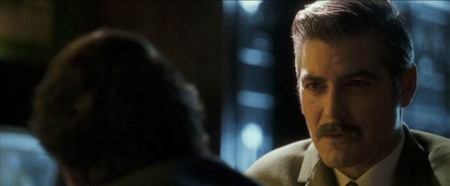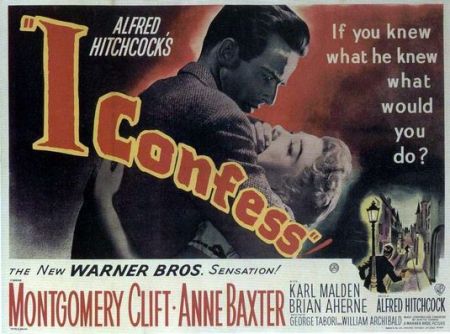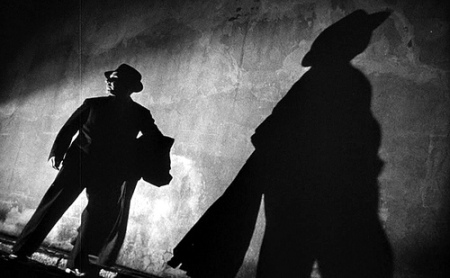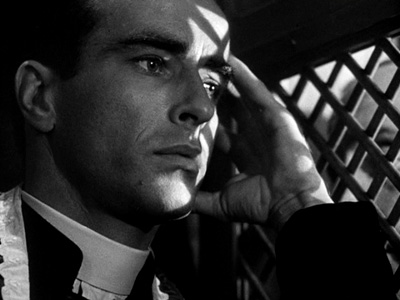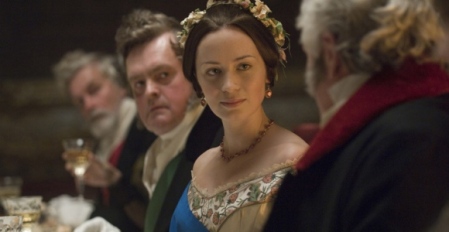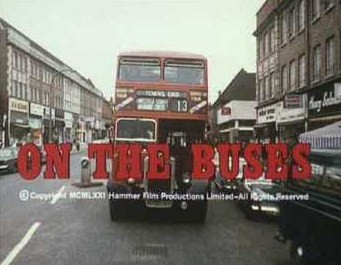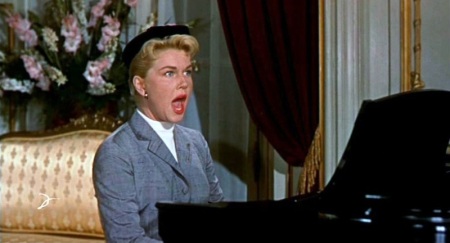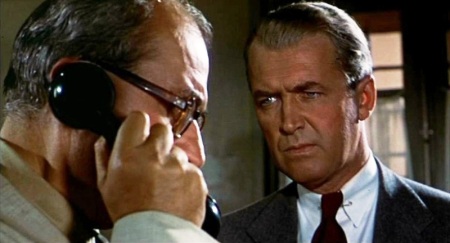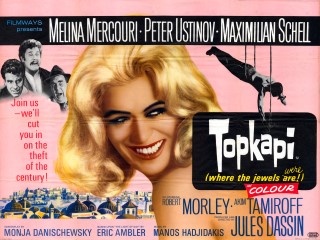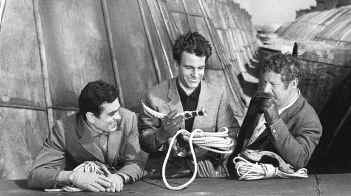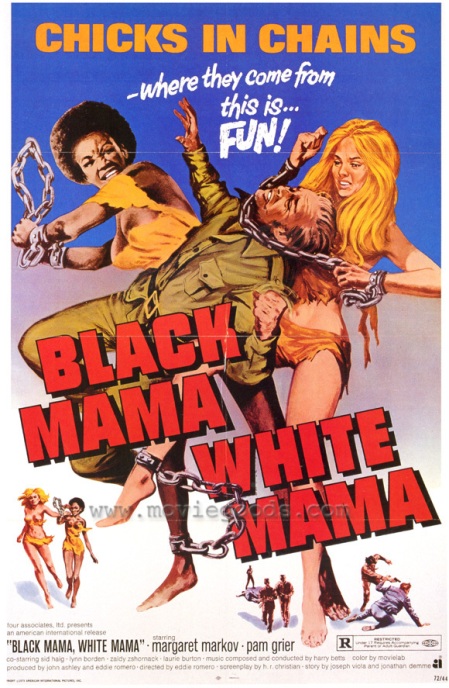
“Part two of my ‘Mama’ double bill”
If the title doesn’t tell you all that you need to know, then the cast list probably does. If the cast list doesn’t, then welcome to civilization and where have you been? Pam Grier- acting, as ever, mostly with her nostrils- is in a prison in the Philippines. I imagine that she was there for a crime she didn’t commit as she gave withering looks to the guards which said “I’m better than this” but I wasn’t totally concentrating as I’d spilt a cup of tea all over my left leg at this point. After the world’s longest shower scene, presumably designed to allow the feckless cum-shedders watching to get their onanistic pleasure out of the way and leave the cinema quietly (and damply) we get on with the plot. Grier and the equally statuesque Margaret Markov don’t hit it off at all, in fact they’re soon throwing things on each other’s food in the canteen and get locked (topless) in a big metal box in searing heat to sweat it out for twenty-four hours. After that, they get chained together to be taken to an even tougher prison but, en route, the prison convoy is attacked by some guerrillas and the girls take their chance to run for it. This is not The Defiant Ones by any means!
A little conversation here reveals that Markov is a poor little rich girl running with a group of Marxists who knows too much to allow them to let her stay in prison where she may talk and Grier is a drug-dealer’s concubine who has stashed away a load of his money. Being chained together presents a little problem; Markov wants to get back to her comrades and appeals to Grier’s better nature “you’re black, surely you can understand”, Grier doesn’t care at all about her “jive-ass” revolution she just wants to get the cash and leave the country. Clearly, all this talk is slowing down the pace too much and Eddie Romero (directing) isn’t stupid, he knows what we want to see. The girls have a catfight.
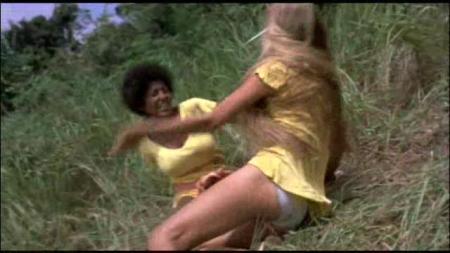
Next they head to the nearest town and, spying two nuns, drag them off the street and duff them up in time-honoured fashion before dressing in their habits as a disguise. Presumably on the grounds of good taste the beating up and stripping to the undies of the Nuns happens off-screen. Good taste my balls, I’m not watching this for sensitive film-making. Now, while I’m on about this scene, I’m not claiming to be a brainbox or anything, but I like to think that I can dress myself okay. What I don’t think I could do is to change from a (tiny, obviously) mini-dress into a Nun’s habit while handcuffed to someone else. Not without some dress-making equipment, a lot of time and total ambidexterity anyway!
Oh, that’s enough about the ludicrous plot (even if Jonathan ‘Silence of the Lambs and New Order’s brilliant ‘True Faith’ video’ Demme did write it!). Here’s what it boils down to- Pam Grier is brilliant in her trademarked early 70s hammy-but-cool way, Marjorie Markov is unexpectedly almost as good and Sid Haig is screen-chewingly brilliant as crackers bounty-hunting gangster who dresses somewhat incongruously as a cowboy. Everyone else is shit. There’s lots of tomato ketchup splashing around and a fair bit of nudity- including Pam’s famously odd 0 and o shaped nipples. The film runs out of steam and ideas pretty quickly and everyone seems to wish they’d just made an “interracial lesbians in prison” movie instead because it all seems a bit too much of an effort out there in the jungle but in spite of it all it’s still tremendously entertaining- if only for Grier and Haig’s charisma. 5/10
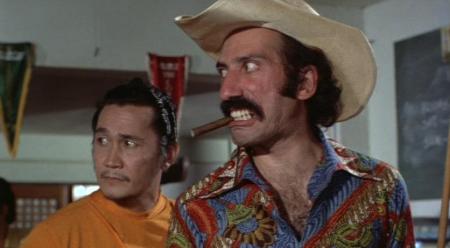



 Posted by Vern McIlhenney
Posted by Vern McIlhenney 